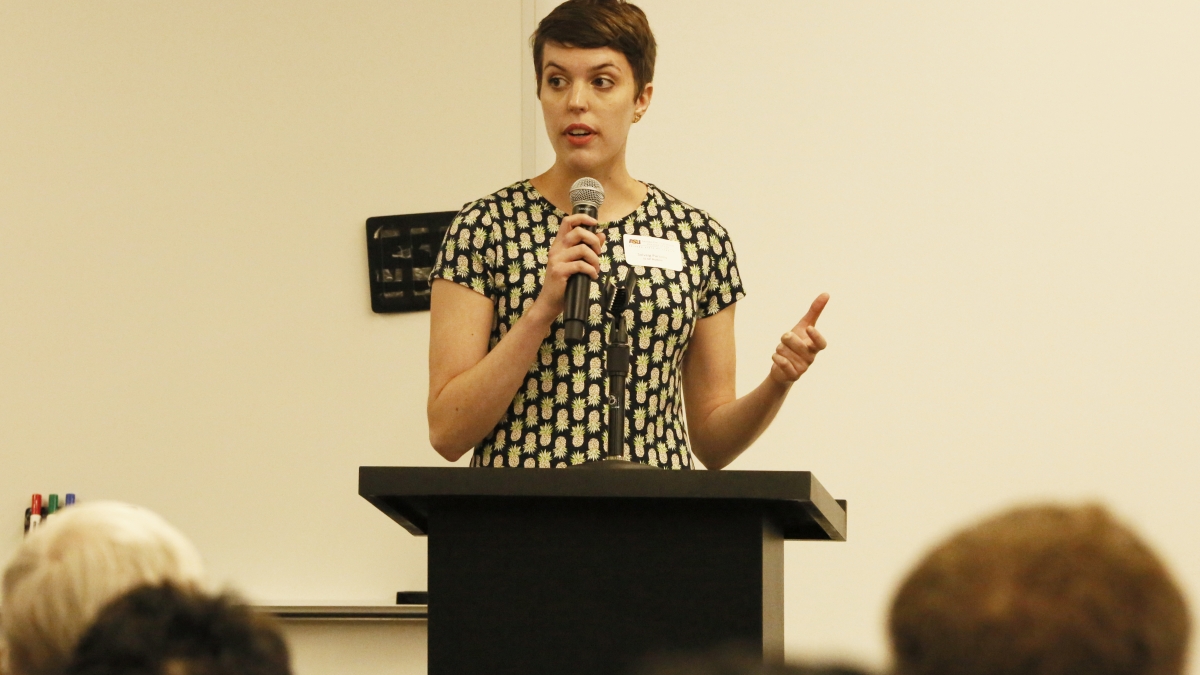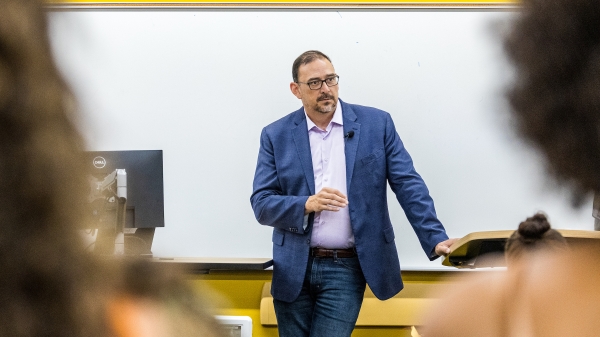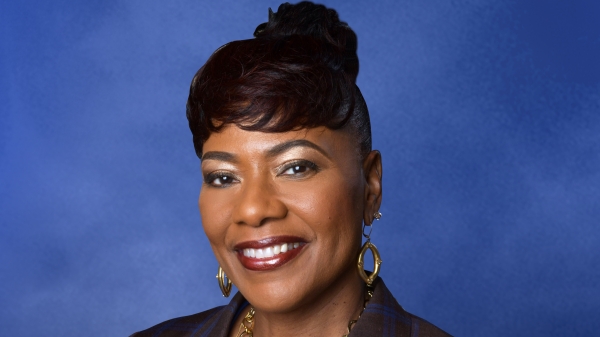Student finds a home in ASU Law’s Indian Legal Program

Solveig Parsons is part of the ASU Law Class of 2018.
Editor’s note: This is part of a series of profiles for spring 2018 commencement.
Ask Solveig Parsons where her hometown is, and she’ll tell you she moved around too much to have one. After attending Messiah College in Mechanicsburg, Pennsylvania, where she majored in French and politics, she then enrolled at NYU Law.
But after falling in love with Phoenix during an internship, she found herself looking into the Sandra Day O’Connor College of Law and its Indian Legal Program.
So she transferred to ASU Law, where she felt at home.
“I've found ASU Law to be a very supportive learning environment, and the ILP particularly is just an outstanding group of professors, staff and students,” she said.
And as she prepares to graduate, she is confident she can work anywhere with her ASU Law degree in hand.
“I was a bit concerned about whether the degree would limit me regionally to where I could work,” she said. “But in the end, I haven't found that to be an issue, because the Indian Legal Program here is recognized around the country. My advice to others who are interested in working outside the Southwest would be to take advantage of ASU's many study-abroad, externship opportunities, and fall/spring-break trips. Those allow the networking and experiences to make your degree relevant anywhere you go.”
Question: What was your “aha” moment, when you realized you wanted to go to law school?
Answer: It was a gradual process, no one “aha” moment. I knew it wasn't something that I wanted to launch into unless I had really considered the pros and cons.
Q: Tell me something interesting about your time at ASU Law and/or an accomplishment that you’re particularly proud of?
A: My favorite experiences have been doing the National Native American Law Student Association Moot Court during 2L, and doing the Indian Legal Clinic during 3L.
Q: What outside activities did you pursue at ASU Law?
A: A lot of community gardening. Time working in the dirt counteracts the time spent in the books.
Q: What’s something you learned while at ASU Law — in the classroom or otherwise — that surprised you and/or changed your perspective?
A: I found attorneys who I could look up to, because they combined a strong set of personal values with their advocacy. The way attorneys are portrayed, and even how they portray themselves, is being totally directed by their clients and not having any personal perspective or compass. I was so glad to find out that isn't true.
Q: What’s advice would you give to those still in school?
A: Take care of your mental health and your relationships with people outside law school.
Q: What was your favorite spot on campus, whether for studying, meeting friends or just thinking about life?
A: I typically only went to campus for the mandatory stuff. Law students tend to emanate a lot of stress, myself included, so I'd rather work in a Starbucks or at home. But this year I've spent a lot of time in clinic — it's studying/friends/thinking — it's pretty much where clinic students live.
Q: What’s your particular area of interesting in the legal field, and what are your plans after graduation?
A: I didn't go into law school with a particular plan of what I would do, but I knew what I wanted to become. I wanted to become an advocate who could help people in my community access the legal system. I'm currently job searching, so I'm not sure yet exactly where that will be.
Q: If someone gave you $40 million to solve one problem on our planet, what would you tackle?
A: The loss of biodiversity in our food system. That or the lack of maternity and paternity leave in the U.S. It'd be a tough choice.
More Law, journalism and politics

ASU's Carnegie-Knight News21 project examines the state of American democracy
In the latest project of Carnegie-Knight News21, a national reporting initiative and fellowship headquartered at Arizona State…

Arizona secretary of state encourages students to vote
Arizona Secretary of State Adrian Fontes looked right and left, taking in the more than 100 students who gathered to hear him…

Peace advocate Bernice A. King to speak at ASU in October
Bernice A. King is committed to creating a more peaceful, just and humane world through nonviolent social change.“We cannot…